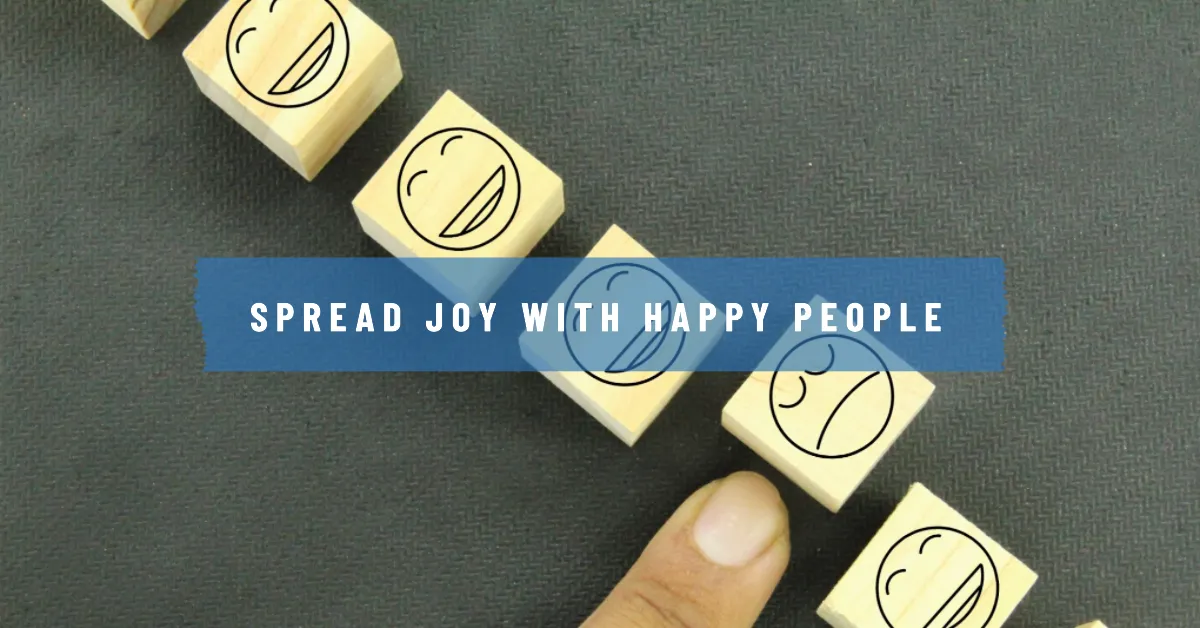If you’re feeling stuck in a negative mindset, it may seem like there’s no way out. But the truth is, with some simple mindset shift activities, you can start to become more positive and free yourself from those limiting thoughts. It won’t happen overnight, but with consistent effort and practice, you can create lasting change.
The first step is recognizing and challenging negative thoughts. This means paying attention to your inner dialogue and questioning any thoughts that are holding you back or making you feel bad about yourself. Once you start to identify these negative thought patterns, you can begin to challenge them by asking yourself if they’re really true or if there’s another perspective to consider. With time and practice, this will become easier and automatic, allowing you to shift your mindset toward positivity.
Table of Contents
Key Takeaways
- Mindset shift activities require consistent effort and practice for lasting change.
- Challenging negative thoughts involves identifying trigger points and questioning them.
- Practicing gratitude, mindfulness meditation, and being present can improve mental wellbeing.
- Surrounding oneself with positivity, setting achievable goals, and practicing self-care is important for overall wellbeing.
Recognize and Challenge Negative Thoughts
You can’t let negative thoughts control you. Start recognizing them and challenge them head-on to take back control of your mindset. Negative thoughts can creep up on you at any time, leaving you feeling down and unmotivated. It’s important to recognize these negative thoughts as they arise and challenge them with positive affirmations or actions.
One way to recognize negative thoughts is by keeping a journal. Write down any negative thought that comes to mind, no matter how small it may seem. This will allow you to see patterns in your thinking and help you identify trigger points for negativity. Once identified, these triggers can be addressed through positive self-talk or other activities that bring joy into your life.
Challenging negative thoughts takes practice, but it’s worth the effort. When a negative thought arises, ask yourself if there is evidence to support it. Oftentimes, there isn’t any evidence at all! This realization alone can shift your mindset from one of negativity to positivity. Replace the negative thought with a positive affirmation, such as “I am capable” or “I am deserving of happiness.”
Challenging negative thoughts is an ongoing process – don’t beat yourself up if you slip up once in a while! Keep practicing recognizing and challenging those pesky negative thoughts until it becomes second nature. Over time, this mindset shift will lead to more positivity in all areas of your life – relationships, work, and personal growth. Don’t let negativity hold you back – take control of your mind and embrace a more positive outlook on life!
Practice Gratitude
Ironically enough, complaining about what you don’t have has never brought you as much joy as expressing gratitude for what you do have. Gratitude is a powerful tool that can help shift your mindset from negative to positive. It’s easy to focus on what’s missing in your life, but when you start focusing on the good things that are already present, it becomes easier to see more positivity.
One way to practice gratitude is by keeping a daily journal where you write down three things that you’re grateful for each day. These can be small or big things like having a roof over your head, being able to spend time with loved ones, or even just enjoying a delicious cup of coffee in the morning. By taking the time to acknowledge these things and express gratitude for them, you’ll start feeling more positive and optimistic about life.
Another way to practice gratitude is by expressing appreciation toward others. Take the time to say thank you and show appreciation toward those who have supported or helped you in some way. This not only helps strengthen relationships but also boosts your own sense of happiness and wellbeing.
Remember that practicing gratitude isn’t just a one-time thing – it takes consistent effort to make it a habit. But once you incorporate this mindset shift activity into your daily routine, it can lead to significant improvements in overall happiness and wellbeing. So go ahead – take a few minutes each day to reflect on what brings joy into your life and express gratitude for it!
Engage in Mindfulness Meditation

Are you feeling overwhelmed by stress and anxiety? Engaging in mindfulness meditation may be just what you need to find some relief. By focusing on the present moment, cultivating awareness and acceptance, and reducing stress and anxiety, mindfulness meditation can help you feel more calm and centered. So why not give it a try today? Find a quiet place to sit or lie down, close your eyes, and take a few deep breaths. Allow yourself to become fully present in the moment, noticing any thoughts or feelings that arise without judgment. With practice, you’ll find that mindfulness meditation can be a powerful tool for improving your mental health and wellbeing.
Focus on the Present Moment
Don’t let your worries about the future or regrets from the past distract you from fully experiencing and enjoying the present moment. It’s easy to get caught up in what could happen or what has already happened, but it’s important to focus on what is happening right now. Take a deep breath and remind yourself that this moment is all that matters. The past cannot be changed, and the future is not yet here. So why waste your energy on things that are out of your control?
Instead, try to be present in each moment as it comes. Engage all of your senses and really experience everything around you. Observe the world with curiosity and wonder, just like a child would. By doing this, you’ll find that life becomes more enjoyable and fulfilling. You’ll also feel less stressed because you’re not worrying about things that may never happen or dwelling on things that have already passed. Remember, life happens in the present moment – make sure you’re there for it!
Cultivate Awareness and Acceptance
To truly live in the present moment, it’s important to cultivate an awareness and acceptance of ourselves and our surroundings, like a gardener tending to their garden. This means taking the time to observe our thoughts and emotions without judgment or criticism. It also means accepting any uncomfortable feelings or situations that may arise, instead of fighting against them.
By becoming more aware and accepting, you can gain a greater sense of control over your life. You’ll be able to recognize when you’re getting caught up in negative thought patterns or behaviors and make a conscious effort to shift your focus back to the present moment. Remember, cultivating awareness and acceptance is not always easy – it takes practice and patience. But with time, you’ll find that this mindset shift will help you feel more positive, grounded, and free.
Reduce Stress and Anxiety
Now, it’s time to take a deep breath and focus on reducing stress and anxiety. This is easier said than done, but with the right mindset shift activities, you can learn how to manage your emotions better and feel more positive.
Here are three practical ways to reduce stress and anxiety:
- Connect with nature: Spending time in nature can be incredibly rejuvenating and help reduce stress. Whether it’s a short walk in the park, hiking in the mountains, or simply sitting by a lake, being in nature can calm the mind and promote a sense of peace. Nature has a soothing effect on our senses and can serve as a refreshing escape from the hustle and bustle of daily life.
- Practice progressive muscle relaxation: Progressive Muscle Relaxation (PMR) is a relaxation technique that involves tensing and then relaxing various muscle groups in your body. It can help you release physical tension and alleviate stress. Start by sitting or lying down in a comfortable position. Tense a specific muscle group (e.g. your shoulders) for about 5-10 seconds, then release and let the tension go. Move through different muscle groups, such as your arms, legs, and facial muscles. By the end of the exercise, you’ll feel more relaxed and less anxious.
- Practice deep breathing techniques: Take a moment to engage in deep breathing exercises. Deep breaths can activate the body’s relaxation response, calming the nervous system and reducing stress levels. Try inhaling deeply through your nose for a count of four, holding your breath for four counts, and exhaling slowly for a count of six. Repeat this several times to feel more centered and relaxed.
Remember that managing stress and anxiety takes practice, patience, and consistency. Keep working on these mindset shift activities every day until they become habits – you’ll soon start feeling more positive and free from negativity!
Surround Yourself with Positivity

If you want to become more positive, it’s important to surround yourself with positivity. Spend time with people who uplift you and inspire you to be your best self. Avoid negative influences that bring you down and consume positive media that reinforce your mindset shift toward a more optimistic outlook on life. Remember, the company you keep can have a significant impact on your mental wellbeing, so choose wisely and prioritize positivity in all aspects of your life.
Spend Time with Positive People
Hanging out with upbeat individuals is a delightful way to enhance your positivity. When you surround yourself with positive people, their energy and enthusiasm can rub off on you. You’ll feel more motivated and inspired to be your best self.
If you’re looking to make a mindset shift toward positivity, spending time with positive people is one of the easiest ways to do it. Seek out friends, family members, or colleagues who have a sunny outlook on life and make an effort to spend more time with them. Whether it’s grabbing lunch together or attending events as a group, being around these individuals will help you cultivate a more optimistic mindset and approach to life. So go ahead and seek out those who inspire you – they might just change your life for the better!
Avoid Negative Influences
Steer clear of negative influences in your life and watch as your outlook improves dramatically. Negative influences can take many forms, such as toxic relationships, pessimistic coworkers, or even the media you consume. These influences can seep into your subconscious mind and affect your thoughts and emotions without you realizing it.
Here’s a mini-checklist to help you with this:
- Limit time spent with people who bring you down or drain your energy;
- Surround yourself with positive role models who inspire and uplift you;
- Be mindful of the media you consume, such as news or social media, and limit exposure to negative content.
By consciously choosing to remove negative influences from your life, you are creating space for positivity to flourish. You will find that your mindset shifts toward a more optimistic outlook on life. Remember that it is within your power to choose the people and information that influence you – choose wisely for a happier and more fulfilling life.
Consume Positive Media
You can improve your outlook on life by consuming media that has a positive message and inspires you. Instead of constantly filling your mind with negative news stories or gossip, try to seek out content that uplifts and motivates you. This can include things like motivational podcasts, inspiring books, or uplifting movies.
To help guide you in choosing positive media, here is a table of examples:
| Type | Example |
|---|---|
| Podcast | The Daily Pep Talk |
| Book | The Alchemist by Paulo Coelho |
| Movie | The Pursuit of Happyness |
By consuming media that inspires you, you are more likely to have a positive mindset and attitude toward life. It’s important to remember that what we consume affects our thoughts and emotions, so choose wisely. With just a small shift in the type of media we consume, we can create a big impact on our overall wellbeing.
Set Realistic Goals
Setting achievable goals is key to shifting your mindset toward positivity. It’s important to set goals that challenge you but are still realistic and attainable. When you set unrealistic goals for yourself, it can lead to disappointment and frustration, which can hinder your progress toward a positive mindset.
To set realistic goals, start by identifying what it is that you want to achieve. This could be anything from learning a new skill to achieving a fitness goal, or even improving your relationships with others. Once you’ve identified your goal, break it down into smaller, more manageable steps. This will make the process feel less overwhelming and help you stay on track.
Here are three tips for setting realistic goals:
- Be specific: Instead of setting a vague goal like “get in shape”, be specific about what that means for you. Do you want to run a 5K? Or maybe just be able to walk up the stairs without getting winded? Having a clear idea of what you’re working toward will help keep you motivated.
- Set deadlines: Give yourself a timeline for achieving your goal. This will help keep you accountable and prevent procrastination.
- Celebrate small wins: Don’t wait until you’ve achieved your ultimate goal to celebrate! Recognize and celebrate the small victories along the way – this will help keep you motivated and build momentum toward achieving your larger goal.
Remember – achieving a positive mindset takes time and effort, but setting realistic goals is an important first step in the process. Keep pushing yourself forward, focus on progress over perfection, and celebrate each small victory along the way!
Practice Self-Care

Hey, you! Are you feeling stressed out and overwhelmed lately? It’s time to start practicing self-care! Taking care of your physical health is just as important as taking care of your mental health. Prioritizing both will help you feel more balanced and equipped to tackle whatever challenges come your way. Don’t forget to engage in activities that bring you joy and fulfillment – it’s a crucial part of maintaining a positive mindset. So take some time for yourself today, because you deserve it!
Take Care of Physical Health
Maintaining good physical health is essential for cultivating a positive mindset, so it’s important to prioritize exercise and healthy eating habits.
Here are four simple ways you can take care of your physical health:
- Move your body: Engage in physical activities that you enjoy, such as dancing, hiking, or playing a sport. This will not only keep you physically fit but also release endorphins that boost your mood.
- Eat nutritious food: Incorporate more fruits, vegetables, and whole grains into your diet while limiting processed foods and sugar. A healthy diet can improve brain function and reduce inflammation which leads to better mental health.
- Get enough sleep: Aim for 7-8 hours of sleep each night to recharge your body and mind. Lack of sleep can negatively impact mood, memory, and decision-making skills.
- Practice stress-reducing techniques: Stress can weaken the immune system and lead to negative thoughts. Try meditation, deep breathing exercises, or yoga to help manage stress levels.
Taking care of your physical health may seem like a daunting task at first but remember that every small step counts toward achieving overall wellbeing. Prioritizing these simple habits will not only benefit your body but also contribute to a positive mindset for a fulfilling life full of freedom and joy!
P.S. Here’s a free and comprehensive beginner meditation guide if you want to learn how to meditate.
Prioritize Mental Health
To truly flourish, you must prioritize your mental health by allowing yourself to rest and recharge regularly. Your mind is like a muscle that needs time to recover after being worked out. Take breaks throughout the day to clear your mind or take a walk outside to get some fresh air. Engage in activities that make you happy, such as reading a book, painting, or spending time with loved ones.
It’s important not to neglect your mental health because it affects all aspects of your life. By prioritizing self-care and implementing healthy habits, you are investing in yourself and setting yourself up for success in all areas of life. Remember to listen to your body and mind and give them what they need to function at their best.
Engage in Activities That Bring Joy and Fulfillment
Engaging in activities that bring you joy and fulfillment is crucial for your overall wellbeing, even if it means taking a break from work or other responsibilities. When was the last time you did something just for fun? It’s easy to get caught up in the daily grind and forget about our own happiness. But taking the time to do something that brings us joy can have a significant impact on our mental health.
One way to find these activities is through a simple exercise: list out things that make you happy, fulfilled, or give you a sense of purpose. This can be anything from reading a book to volunteering at an animal shelter. Make sure to include both small and big activities – sometimes watching your favorite movie can be just as fulfilling as planning a weekend getaway. Use this table below as inspiration for different types of activities:
| Type of Activity | Example | Emotion |
|---|---|---|
| Creative | Painting, Writing | Inspiration |
| Physical | Yoga, Hiking | Empowerment |
| Social | Game Night with Friends, Volunteering | Connection |
| Self-care | Bubble Bath, Meditation | Relaxation |
Remember that engaging in activities that bring us joy doesn’t mean neglecting our responsibilities completely – it simply means finding balance and making time for ourselves. So go ahead and plan that hiking trip with friends or indulge in some self-care with a bubble bath tonight – your mind (and body) will thank you for it!




